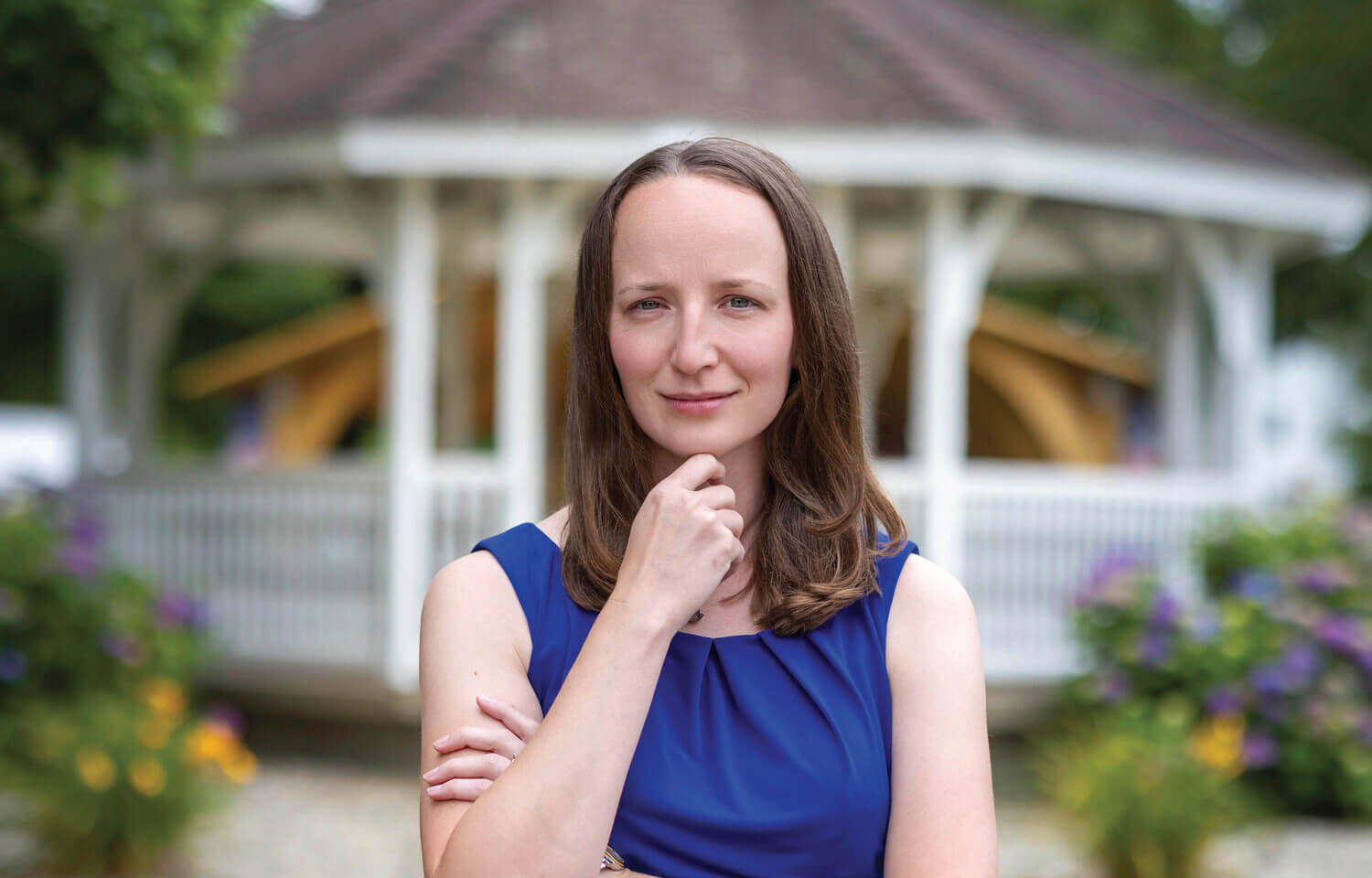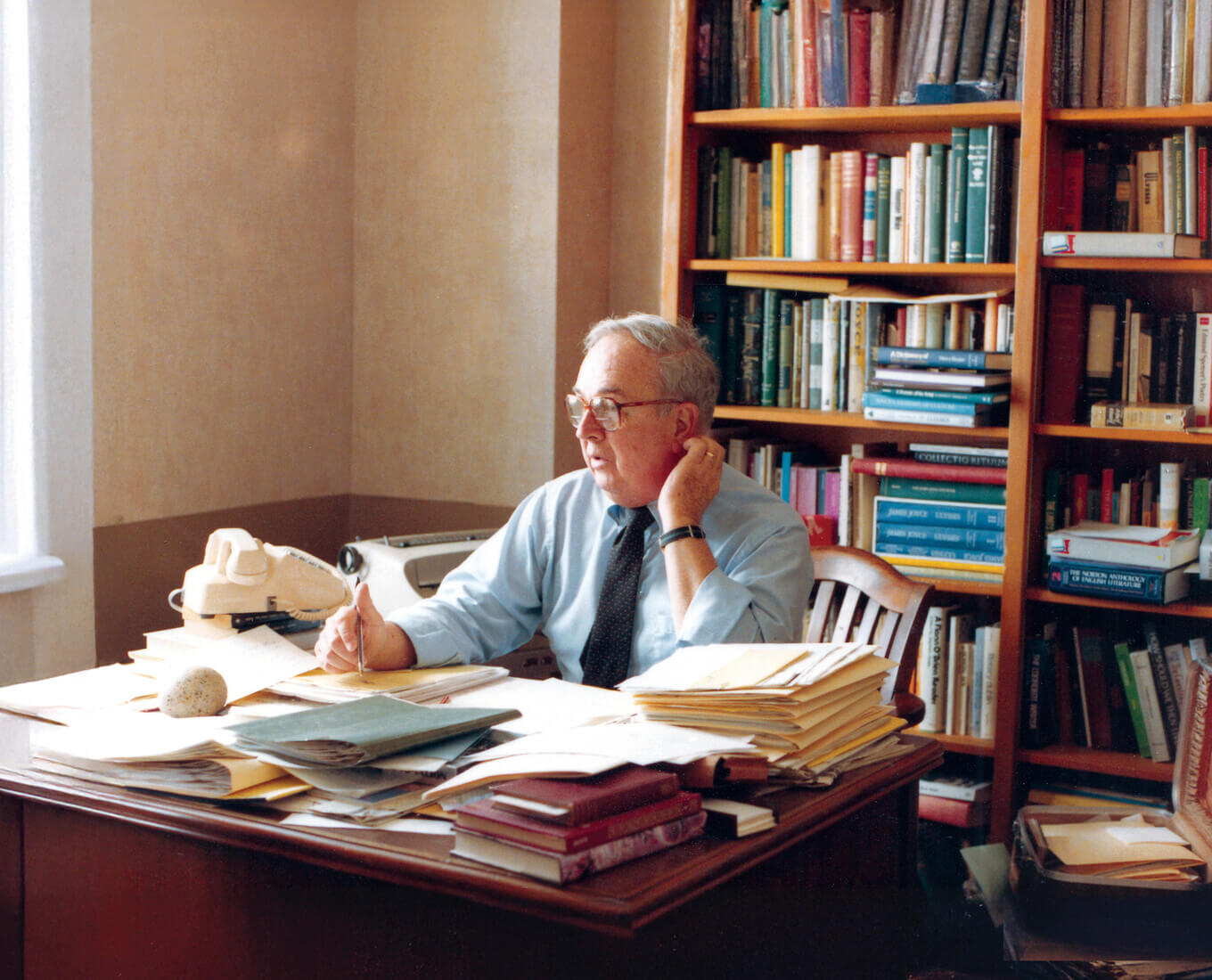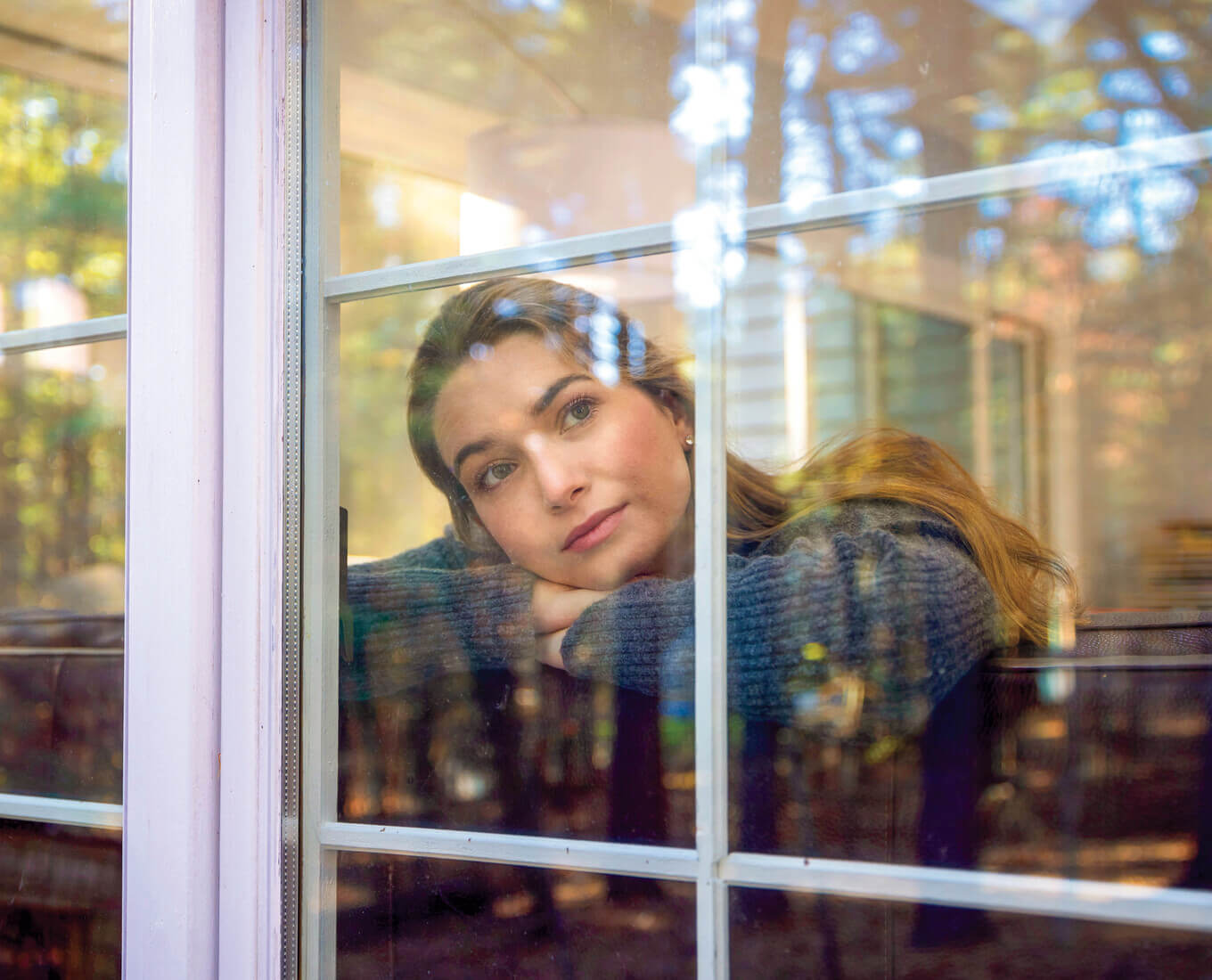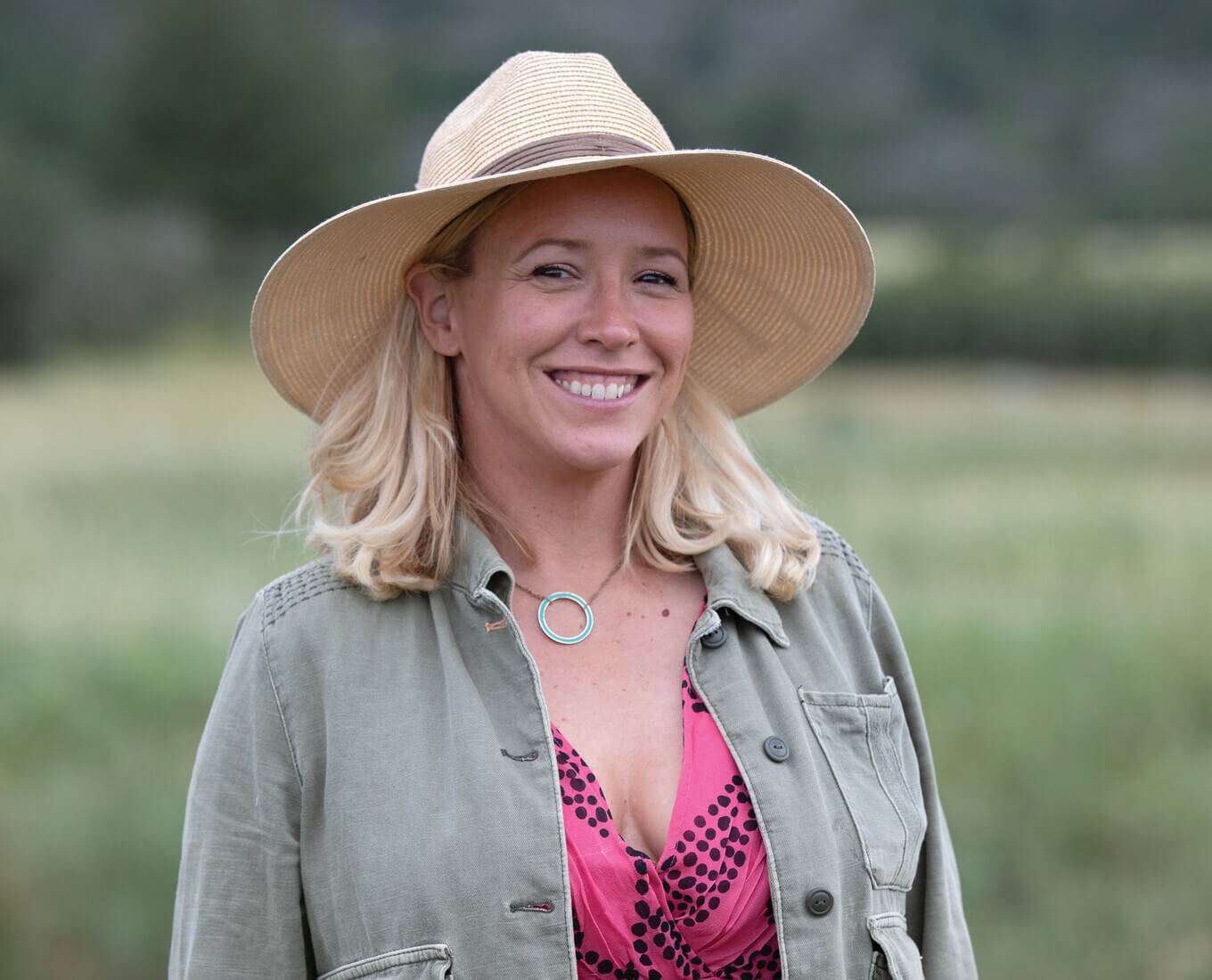Inside O’Neil 332, a poem hangs on the door of the tissue culture room in Professor Rob Bellin’s laboratory. It’s an ode to incubators and proteins, culture dishes and cleanliness – everything found inside the sterile room where cells are grown and studied. The poem has been there since Elizabeth (Morse) Luoma ’09 penned it in the summer of 2007, when she was working in Bellin’s lab. The camaraderie in the lab that summer created not only strong bonds between the student researchers, but also a moment of inspiration for Luoma.
“I don’t know when she wrote it, but she printed it out and just put it on the door of the tissue culture room in response to something that happened one day. That moment struck her in some way, and then she put it up,” recalls Bellin, professor of biology and co-director of the biochemistry concentration. “Through all the years since then, it has rung true to the experience of the tissue culture room.” The poem, one of many student artifacts that have accumulated in the lab over the years, is a tribute to the lab’s long-standing community and that summer.
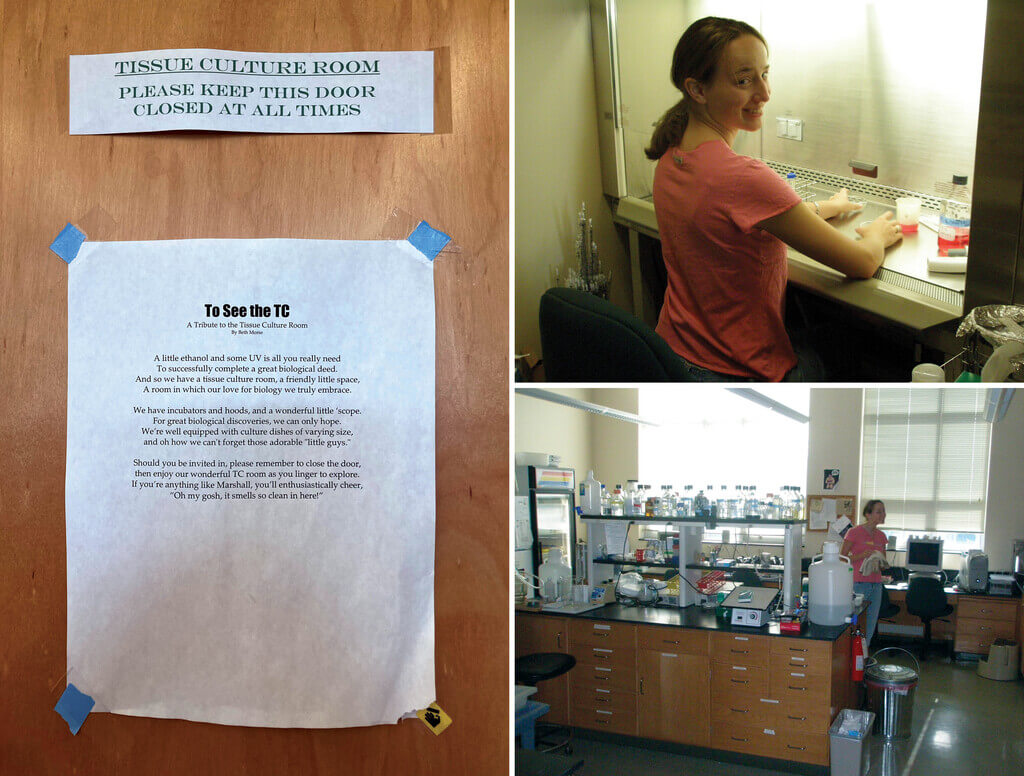
For Luoma, that summer was the precursor to a career in science and higher education, but through it all, she never let go of her first love: poetry. It’s a passion she’s returning to now, in a role she never expected – poet laureate of her Connecticut town.
FROM PAGE TO PERFORMANCE TO ... A LAB
Luoma has been writing poetry since she learned how to write. Growing up in Shelton, Connecticut, she recalls writing acrostics on construction paper pumpkins in elementary school, learning how to fit rhyming words together like a puzzle and winning a national award for a poem she wrote in sixth grade. In high school, her diaries were filled with love poems, like those of many teenagers experiencing first love and first heartbreak. Eventually, her poems started to make it off the page and into performance. Four years in a row, she roasted her 80+ person youth group at their annual Christmas party in the style of “’Twas the Night Before Christmas.” As valedictorian of her high school class, she gave her graduation speech entirely in rhyme, garnering local media attention and hometown recognition.
“People remember it,” says her husband, Jeff Luoma ’09, who recalls watching people recognize his wife back in Shelton while visiting her parents. “I think that was part of what she was going for – even if you’re not going to absorb the whole message, maybe you’ll take a snippet away from it because it was delivered in a clever or unique way.”

But upon starting at Holy Cross, Elizabeth Luoma wasn’t interested in studying English or creative writing. Instead, she had fallen in love with biology, thanks to a favorite high school science teacher with a humorous bulletin board and a knack for communicating complex scientific topics clearly. Luoma, who notes she has a history of passing out at the sight of blood, decided to pursue a biochemistry concentration, rather than study to become a doctor. She began to work in Bellin’s lab the summer after her sophomore year, studying the proteins involved in neurofibromatosis type 2, a genetic disease that affects the peripheral nervous system, and helping teach a science curriculum to Worcester Public Schools faculty through a grant-funded program at the College. In her senior year, she became Bellin’s teaching assistant for his biochemistry lab course. It was the act of teaching – both learning from Bellin and teaching herself – that made an impact on her.
“She always was and always has been very enthusiastic and a hard worker, but always very focused on the people around her. And that is something that has always really stood out,” Bellin says. “Some people, in looking for their success, are very focused on themselves. Beth has always been someone who helped everyone in the lab be successful.”
After graduating valedictorian from Holy Cross, Luoma worked at Dana-Farber Cancer Institute for a year before applying to graduate school. By then, she knew what she really wanted to do in the sciences: teach.
She chose to enroll in a Ph.D. program at Yale, in part because of the university’s graduate teaching center and the program’s requirement to teach undergraduate courses. From there, she transitioned into educational development, first at Yale and then at Sacred Heart University in Fairfield, Connecticut, where she is currently executive director of the Center for Teaching and Learning, leading its instructional development programming for faculty and academic support services for students. Poetry took a backseat as Luoma focused her time on writing her dissertation and publishing peer-reviewed articles in science and education journals. But she was still honing her communication skills, just in a different format.
“Both poetry and scientific writing invite us to capture the world with precision and clarity,” Luoma explains. “They’re very different forms, but in order for our reader to understand what we’re saying, whether it’s with scientific jargon or with metaphor, we have to craft our message with clarity and intentionality.”
Though Luoma never took a creative writing course at Holy Cross, her writing developed in other places: working on scientific manuscripts and contributing to publications in the biology program, getting constructive feedback about her writing in a Women in Early Christianity course and composing bilingual poetry in her Spanish class. She credits Holy Cross’ requirements to explore other disciplines and interests with what she calls her “liberal arts approach to life.”
“It can be easy to get trapped in a linear approach to our careers,” Luoma says. “Life’s short, and we might have many loves. Why not experience them all?”
This philosophy even gave her the courage to apply for the role of poet laureate of North Haven, Connecticut.
“My liberal arts education at Holy Cross opened my eyes. It exposed me to perspectives and fields I hadn’t encountered before. It gave me the preparation and courage to then, later in life, go after a poet laureate role as a biologist. We don’t have to stay in one lane. We can experience life more fully by pursuing multiple passions,” Luoma says.
THE LOCAL POET LAUREATE
In December 2024, The North Haven Citizen published an article about the search for the town’s next poet laureate. The inaugural poet was serving a third year on a two-year term, and the town was seeking new applicants. Luoma read the article, put a sticky note on it that read “Should I apply for this?” and left the paper on the kitchen counter. Jeff Luoma responded with a definitive, “Yes!”
“Our careers are opportunities to weave together threads of previous experiences and interests over time. My career in teaching and educational development has required a significant amount of public speaking and workshop facilitation, both of which are required of the poet laureate role. Now, it’s like the many skill sets of my current professional role have been braided together with my long-held love of poetry,” Luoma says.
North Haven’s board of selectmen created the poet laureate role in 2022, envisioning that it could represent the benefits of the language arts in schools, as well as compose original poetry for the town’s various ceremonies. “The primary focus is to reach out to the community in a variety of ways, whether it’s through the schools or at the library, with various programs and events, to engage people in the art of poetry, and also to grace a ceremony,” says Sally Buemi, third selectman.
When Luoma sat down to work on her application, she found herself naturally drafting a poem, later titled “Poetry for Good,” as the opening to her personal statement.
What good, then, is poetry as an art?
Of verse, of rhythm, of sonnet, of heart,
It unleashes our souls, our desires, our claims,
It revels in our identities, our personhood, our names.
— “Poetry for Good,” January 2025
The rest of her personal philosophy articulated her goal of making poetry accessible for all. Leveraging her background in education and passion for early literacy, Luoma proposed introducing various programs for the town’s children, teens and adults, including “Rhyme Time” for preschoolers, a “Tortured Poets Department” club for teens and “Poetry for Good” workshops for adults.
“The position of poet laureate really is what the poet laureate makes of it,” Buemi says. “She saw this as an opportunity for her to share her gift and to bring poetry to the citizens of our town. And that enthusiasm is what really made her shine.”
“At the end of the day,” Luoma explains, “the role is really about being an advocate within the community who encourages people to engage with poetry, to find its value, and as a scientist – I can’t help but say – to experiment with it.”
For Luoma personally, it’s also a chance to return to an old love and see how she has grown over the years. “It feels like a homecoming. It feels like putting on your old favorite pair of shoes again that you haven’t worn in a while and taking them for a spin. There’s a familiarity to it,” she explains. “I’m also recognizing the ways that I’ve evolved as a person since some of the first poems I wrote, and how my perspective on life has changed based on the experiences I’ve gone through.”
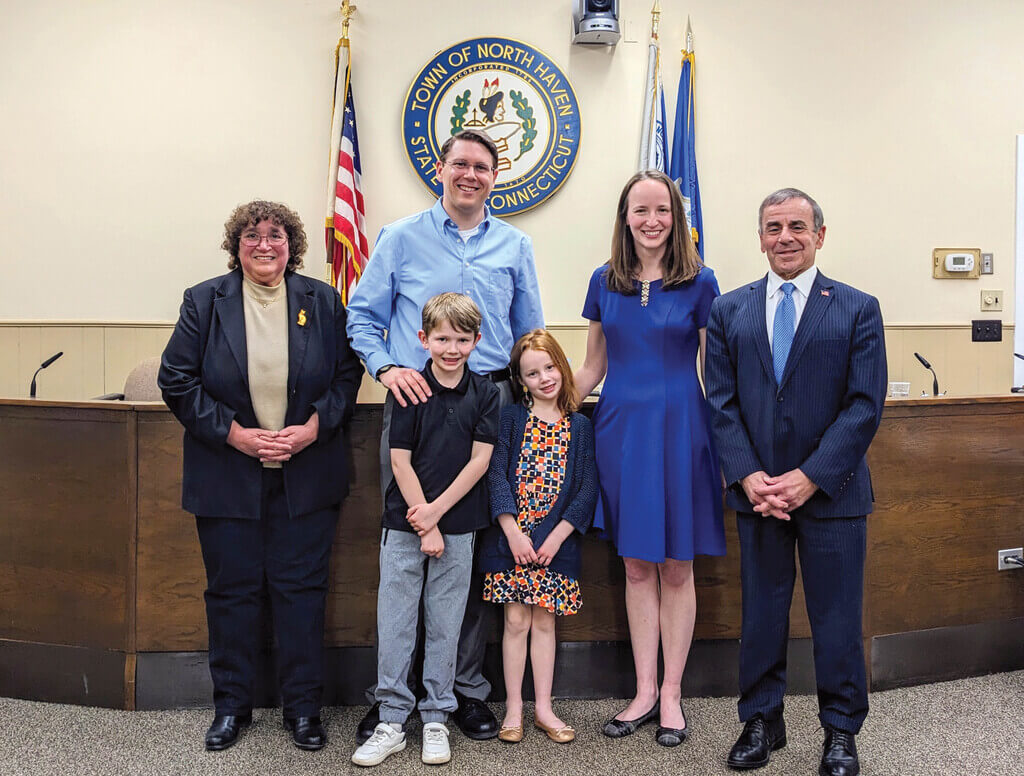
THE LOVE LANGUAGE OF POETRY
Luoma says she is drawn to poetry because of the way it captures a specific experience, emotion or subject in the moment. When inspiration strikes, she needs to write it down before she loses it, something she occasionally gets frustrated about these days as a busy working professional and mother of two young children.
“Poetry to me is like written photography. It captures the thoughts we are having at a specific moment. I find sometimes I’ll have a thought for a poem, and if I don’t capture it in that moment, it’s gone,” Luoma says. As a result, her Notes app is full of kernels of thoughts, voice memos of lines and half-completed poems. “Sometimes she’ll be deep in thought, she’ll get out of the shower, and she’s on a mission. She walks across the room in her towel, and she writes stuff down. And she’s, like, ‘Don’t talk to me! I have to get this down!’” Jeff Luoma says.
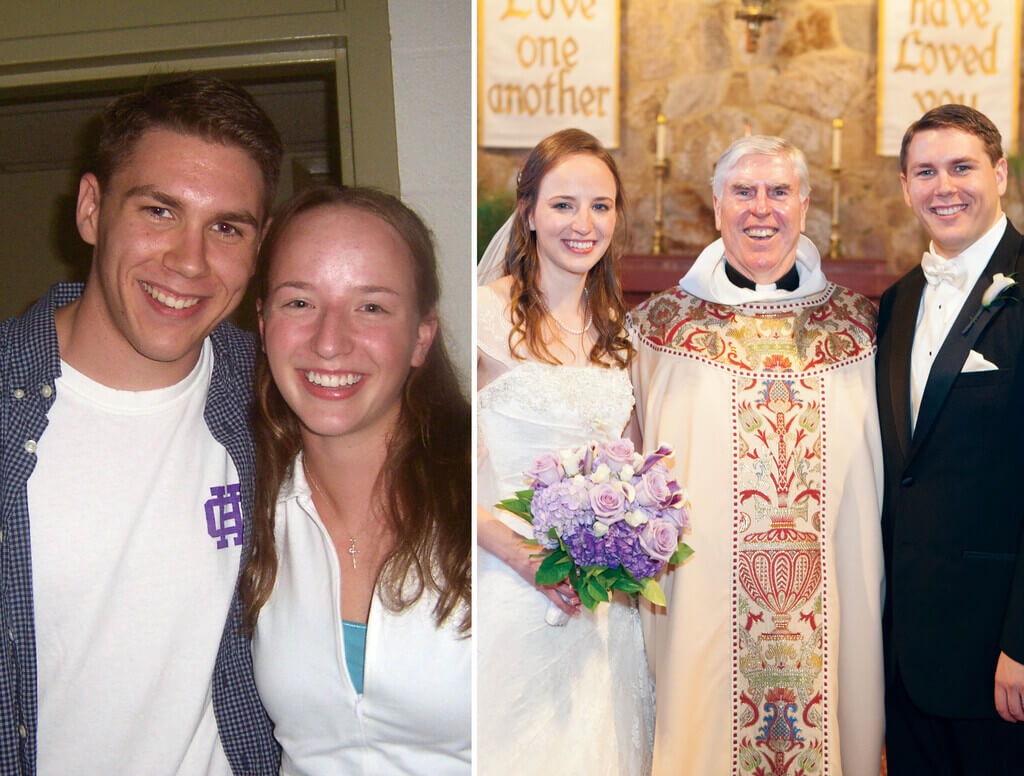
In addition to moments that speak to her, Luoma gravitates toward topics like nature, love and, more recently, grief. She lost both her parents over the past five years – her mother to Alzheimer’s – and has taken to processing some of her emotions about life, death, heaven and anticipatory grief through her poetry. The experience has inspired her to partner with a poet laureate in a neighboring town on a writing for grief workshop for adults, in hopes that poetry can be cathartic for others processing loss in the same way it has been for her.
“Poetry is a wonderful outlet to not only capture our experiences, but also communicate our experiences to others,” Luoma says.
Inspired by Emily Dickinson and Dr. Seuss in childhood, and more recently Maya Angelou and Amanda Gorman, Luoma prefers to write in rhyme – a style which lends itself to performance, which is part of the job as poet laureate. And the performance aspect is one with which she’s well acquainted.
“I do remember having butterflies,” Luoma says of those Christmas youth group roasts, the first time she remembers performing a poem in front of others. “But I think there was the thrill and the adrenaline of making people laugh and making people feel connected to one another in recognizing their commonalities and shared inside jokes and all that. I knew in weaving together the words of those poems I was also helping to weave together that community. That was really life-giving.”
